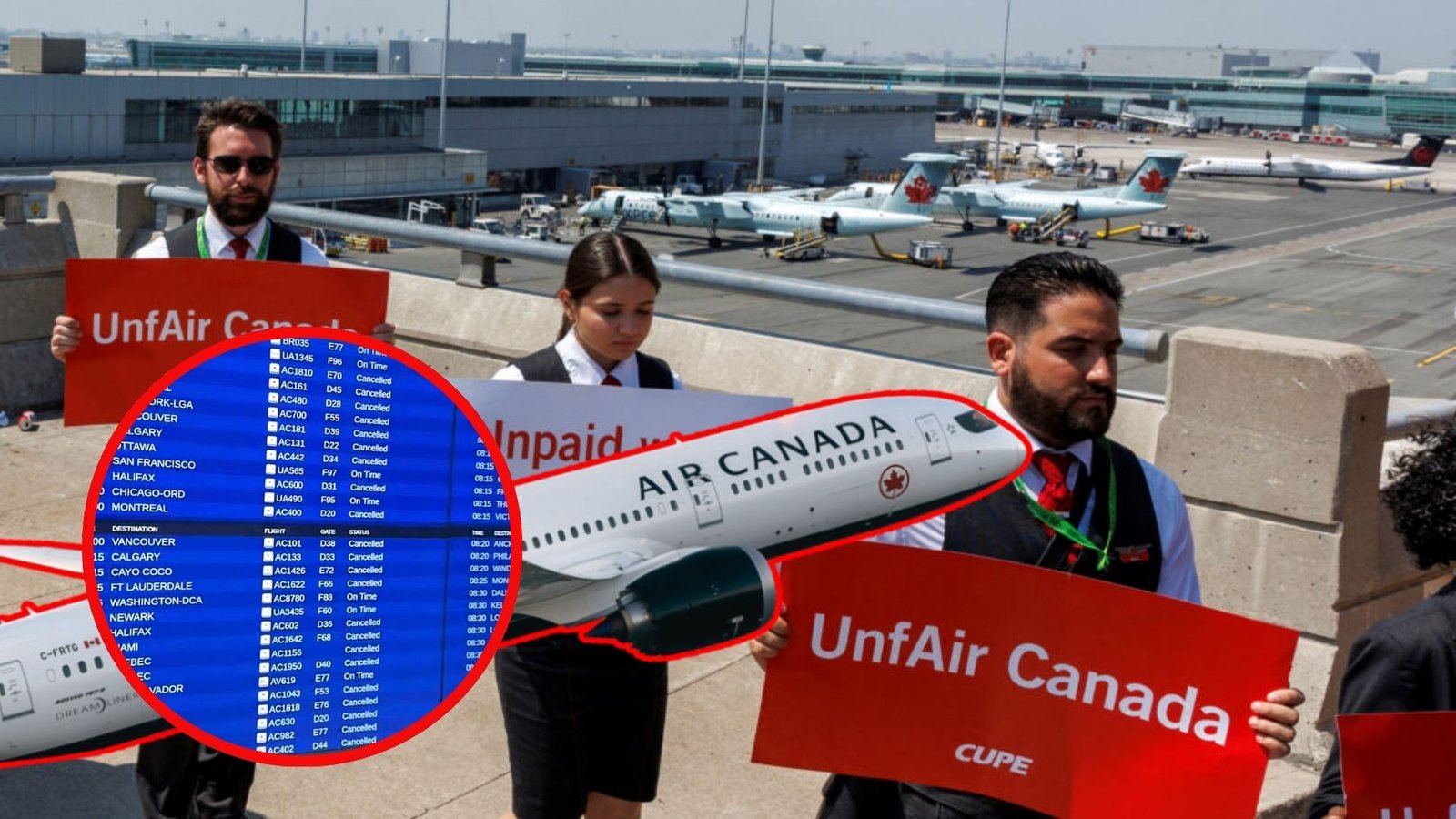Air Canada has suspended most operations as over 10,000 flight attendants walk off the job, disrupting 130,000 passengers daily. The strike leaves worldwide travelers stranded while union talks with the airline stall.
Air Canada Strike
It’s the peak of the summer travel season in Canada, but thousands of travelers are suddenly stranded as Air Canada grounds most of its flights.
The reason? A massive strike by more than 10,000 of the airline’s flight attendants, who officially walked off the job just after midnight on Saturday.
The strike has forced the airline to suspend all operations on Air Canada and Air Canada Rouge flights, leaving about 130,000 passengers a day looking for alternatives.
Only Air Canada Express, which is operated by third-party regional carriers, continues to fly.
But for the majority of travelers—especially those heading/coming from abroad, the disruption is enormous.
What’s Going On?
The dispute has been brewing for months.
The Canadian Union of Public Employees (CUPE), which represents Air Canada’s cabin crew, says negotiations with the airline broke down after eight months at the table.
Wages, unpaid hours, and overall working conditions were the sticking points. Flight attendants argue that despite working long shifts, they are not compensated for significant portions of their time—such as hours spent waiting at airports, overseeing boarding, or managing passengers on the ground.
That means their shift’s compensation started only after the plane’s wheels left the runway.
Why Are Flight Attendants Striking?
CUPE says Air Canada’s offer of a 38% compensation increase over four years still falls below inflation and below industry standards, calling it “in effect, a pay cut.”
Almost every flight attendant voted in favor of the strike—99.7% to be exact. The union says its members are simply asking for fair pay that reflects the realities of their job.
In the interview shown, a worker reported that starting wages would be CA$1900 a month. That means even a worker earning minimum wage, working full-time (about 160 hours/month), would go between CA$2,720 and CA$2,880 per month.
How the Strike Started
The impact was immediate. By early Saturday morning, departure boards at airports across Canada were flooded with “cancelled” and “delayed” notices. Thousands of travelers who had packed, checked in, and arrived at airports suddenly found their flights grounded.
Mark Nasr, the airline’s COO, attended a press conference to announce the strike.
At Montréal-Trudeau Airport, Toronto Pearson, and Vancouver International, long lines quickly formed at customer service counters as passengers tried to rebook or find alternative routes. Many were told their best option was a refund, as Air Canada had limited ability to rebook passengers during the peak summer rush.
How People Are Responding
The strike has sparked a mix of frustration, sympathy, and outright anger.
Social media platforms have been flooded with furious passengers—from families to workers, who can’t go back home.
Flightradar24 shows almost no current flights of Air Canada, or Air Canada Rouge. This strike is a move that will cause Air Canada to lose millions—with around 700 flights suspended a day.
What to Do If You’re Affected
If your flight was cancelled, check your booking online before going to the airport—updates are coming in slowly.
Air Canada is letting passengers with tickets between August 15 and 19 rebook for free on new dates between August 21 and September 12, or cancel for a refund or credit.
Stranded abroad? The airline says it will try to rebook you, even on other carriers, but seats are limited during summer.
With call centres overwhelmed, the fastest option is managing your booking through Air Canada’s website or app.






